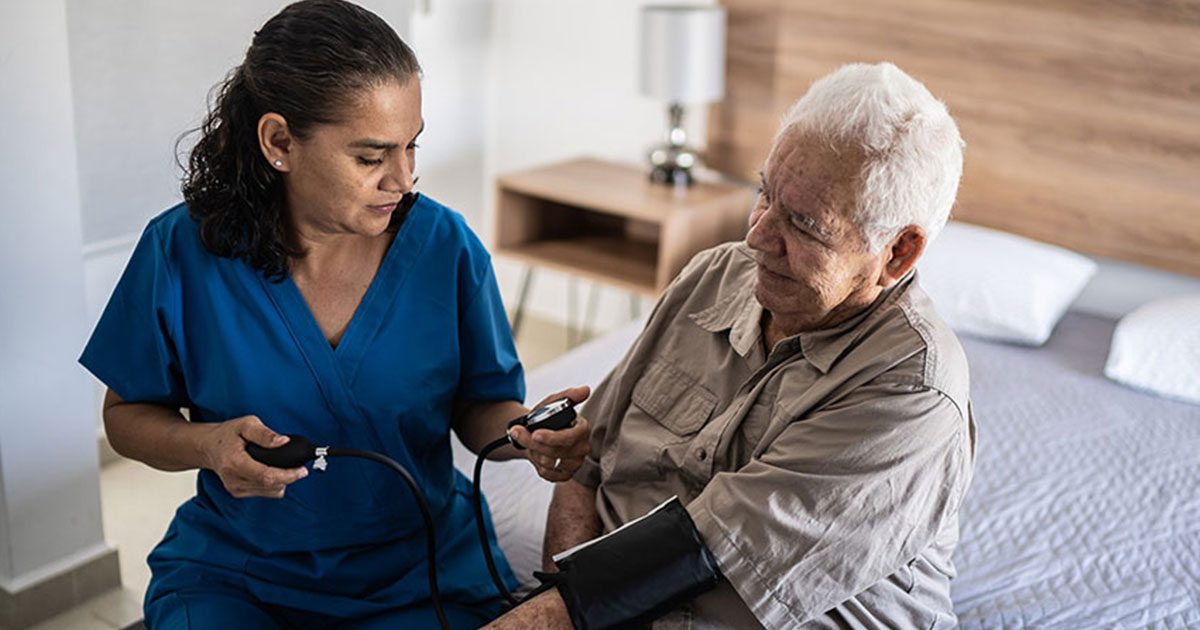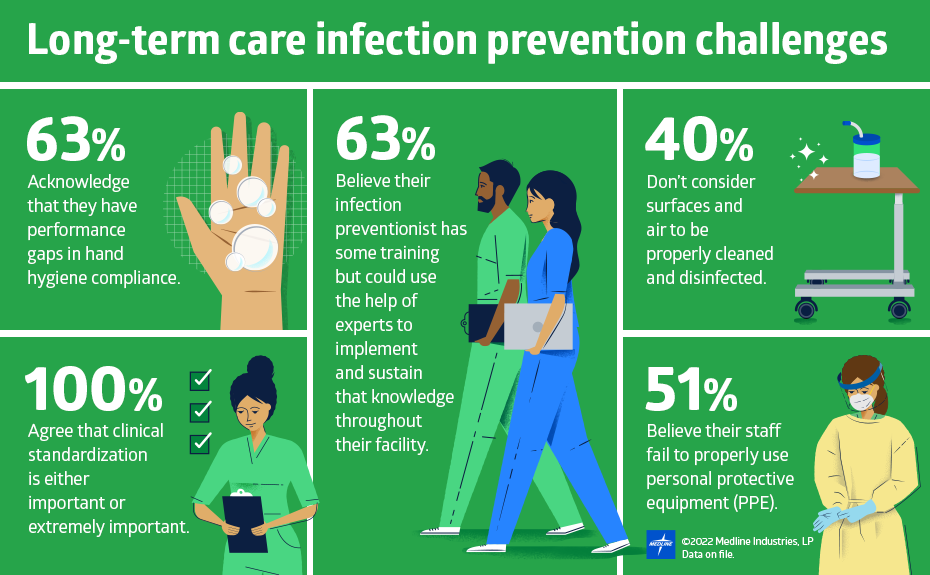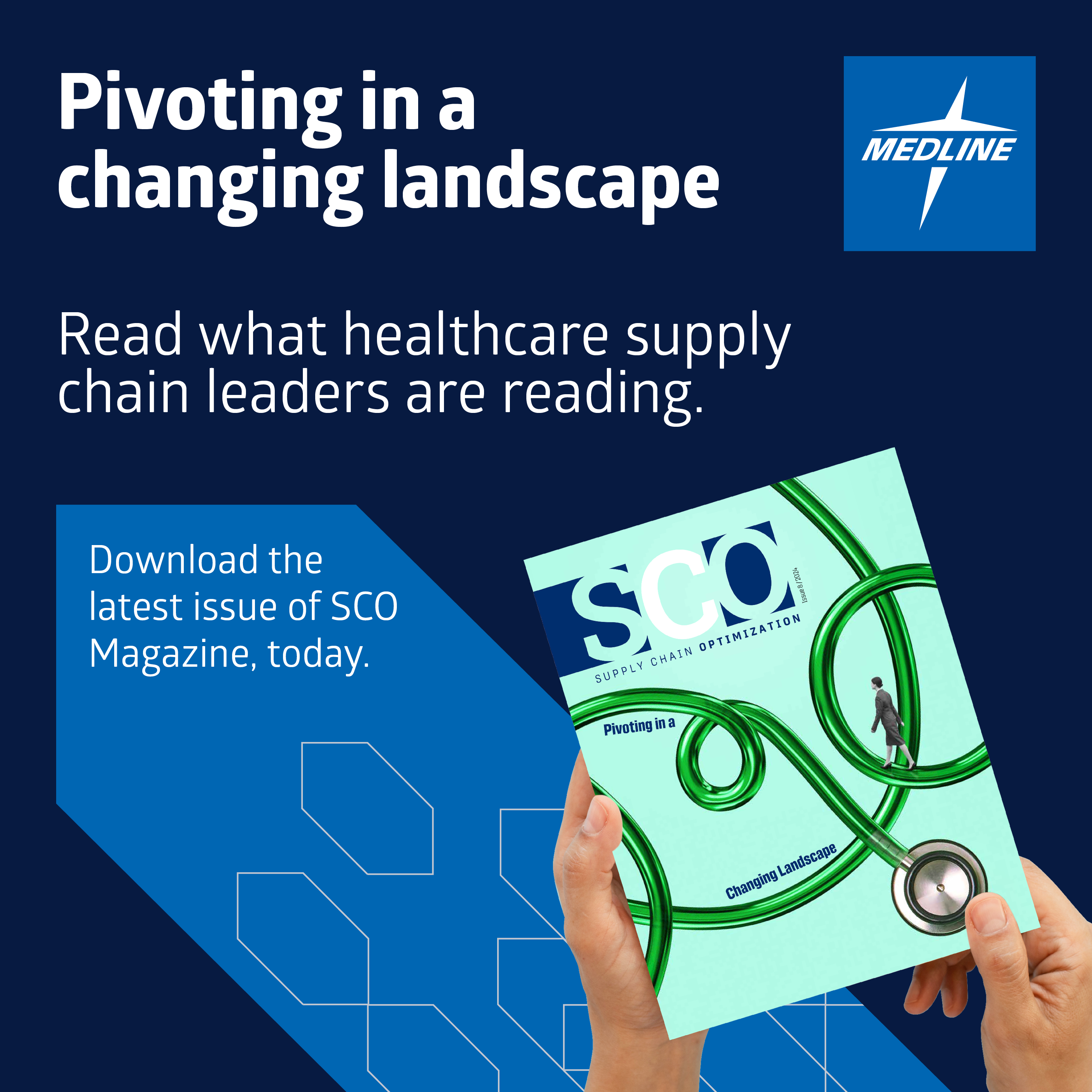The top infection prevention challenges facing long-term care providers

By Medline Newsroom Staff | October 19, 2022
Hand hygiene, standardized practices and adequate training are among the top infection prevention concerns of long-term care providers, according to recent interviews and surveys conducted as part of Medline’s Post-Acute Care Infection Prevention Program.
Ongoing staff shortages have disrupted and upended many protocols, increasing the potential for healthcare-acquired conditions (HACs) and infections. Medline recently completed “discovery assessments” with more than 100 providers across the nation, with the goals of identifying gaps in infection control practices, and implementing training and other viable solutions.

Among the specific findings of the assessments:
- 63% of respondents believe their infection preventionist has some training, but could use the help of experts to implement and sustain that knowledge throughout our facility;
- 100% agreed that clinical standardization is important or extremely important;
- 63% of facilities acknowledged that they have performance gaps in hand hygiene compliance;
- 51% don’t believe that staff is properly complying with PPE use.
Caryn Arnold, MBA, RN, CNOR, medical science liaison for Medline, acknowledged that healthcare staff, and especially infection preventionists, are overwhelmed and fatigued from ongoing post-COVID-19 pressures and challenges. Arnold recommends a back-to-basics approach for long-term care facilities that includes implementing targeted education and training programs, finding ways to make manual observations more efficient, and using champions to support hand hygiene and other infection prevention protocols.
“The typical center has only one infection preventionist dedicating 20 hours a week to surveillance, monitoring, analyzing, reporting and educating, which can prove to be overwhelming.”

Caryn Arnold, MBA, RN, CNOR
Medline Medical Science Liaison
“The typical center has only one infection preventionist dedicating 20 hours a week to surveillance, monitoring, analyzing, reporting and educating, which can prove to be overwhelming,” said Arnold. “Consider expanding your circle of support when it comes to infection prevention education. Champions don’t have to be just staff, but can extend to residents, their families, volunteers, activities coordinators, and dietary support. Increasing the number of individuals focused on infection prevention and control can ensure your program has continuity.”
Reprioritizing hand hygiene
One area of infection control that Arnold recommends as a priority when planning for 2023 is hand hygiene. According to the Association for Professionals in Infection Control and Epidemiology (APIC) proper hand hygiene is the number one way to prevent the spread of infection.
“I know it can begin to sound like a broken record, but post-acute care facilities should ask themselves if they are doing the hand hygiene observations they need to in order to optimally assess compliance and how they are utilizing data to improve processes.”
Finding a dedicated partner
Another solution is finding partners to enhance your organization’s infection prevention strategy. Medline partnered with skilled nursing provider Cashmere Post Acute, an 85-bed facility in Washington state, to implement a customized infection prevention program combining products and education to enhance best practices around hand hygiene compliance. The program included online education via Medline University, quarterly clinical presentations and train the trainer kits, including a unique card game designed to teach staff the essential moments for hand hygiene compliance. “Having Medline as a partner helps ensure that I have someone by my side, presenting educational resources that I would not have necessarily thought of,” said Kat Murray, RN, infection preventionist for Cashmere Post-Acute. “The activities are engaging for our staff, and I feel like I’m not alone in this journey to enhance infection prevention best practices.”
Learn more about Medline’s Post-Acute Care Infection Prevention Program.
Medline Newsroom Staff
Medline Newsroom Staff
Medline's newsroom staff researches and reports on the latest news and trends in healthcare.

